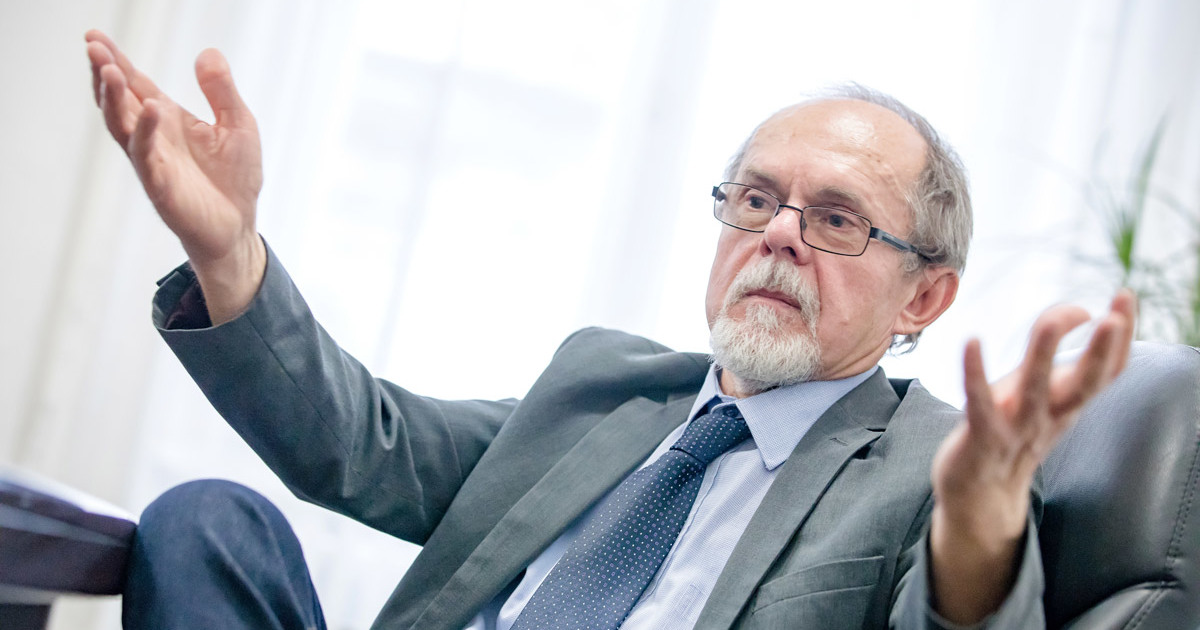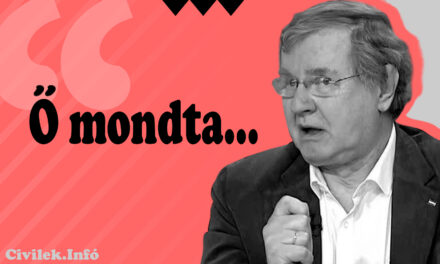As a result of the false mythology of equality, the voter has no idea that what he believes to be his absolute "own" opinion on a deep emotional and emotional level is a "customized" false reality manufactured by the media machine of the global reality industry. Written by László Bogár.
I can or I Kant?
I have to apologize to the dear reader for the somewhat clumsy pun, but the essence of the topic of the article can only be briefly summarized with such an English-German-Hungarian pun.
What happened was that the Russian president gave a lecture at the university in Kaliningrad (Königsberg), a small but extremely strategically important Russian exclave in the Baltic region, on the occasion of the three hundredth anniversary of the birth of Immanuel Kant, the famous German philosopher. From his famous work Eternal Peace, Kant highlighted the very simple but essential philosophical message that
the fundamental condition of peace is that everyone is free to decide according to their own reason.
The answer did not take long, because the German chancellor stated in his commemorative speech at the Berlin-Brandenburg Academy of Sciences that if anyone does not have a moral basis to refer to Immanuel Kant and eternal peace, it is the Russian president.
Although so far this is only the level of the usual media skirmish, it would perhaps be worthwhile to really ponder whether there is, whether eternal peace is possible at all, and if we reconsider Kant's philosophy after more than two hundred years, what conclusions we can reach.
So, whether I can (i.e. whether I can) realize eternal peace or not (I Kant).
Another German philosopher, Oswald Spengler, who is roughly "halfway" in time between Kant and our time, and whose famous work, The Twilight of the West, was published in 1917, already states in the introduction that "there are as many worlds as there are beings in the world". . In other words, every being can be sure that there was no one before him and there will be no one after him who would see the world in the same way as him.
This is both uplifting and depressing. It is uplifting, because it means that we are unique and unrepeatable beings, but it is also devastating, because we are locked in the spiritual "prison" of our own world interpretation logic precisely because of our uniqueness.
Eternal peace (if and if) could only be imagined if and only if we dared to ask the very sensitive questions that would arise from this and which are not usually asked.
Oswald Spengler simply states that everyone has a "universe" in their head that is not identical to anyone else's. However, he does not mention whether these world interpretation systems have the same value in a spiritual sense, or whether, on the contrary, these world interpretations form an infinite spiritual hierarchy, with infinite differences in value in terms of their "suitability".
And this brings us to the question of the most delicate and at the same time provoking a permanent world war instead of eternal peace, whether it is possible, as the defining ideology of our time does, to maintain the forced notion that "everyone equal"?
(It is life-threatening to question this on the basis of the famous triple motto of the French Revolution: liberty, equality, fraternity, while it is evident that all three are false, and their simultaneous validation is a logical impossibility even at the elementary level)
If "everyone is equal", i.e. all beings of "there are as many worlds as there are beings in the world" consider their own way of telling the world to be of equal value to everyone else's, but these narratives are incompatible, then "who is right" and how can we master the resulting permanent chaos that we are still experiencing today?
Of course, we know that a technically ingenious but skilfully avoiding the point of organization has been "invented" for this, let's call it "procedural democracy" for lack of a better word, the essence of which is that the majority is "always right".
But of course we also know that the truth and the majority show a "loose correlation" at most, because many times in history it turned out that even one hundred percent can be wrong.
Not to mention the fact that, more precisely, we have been able to experience during the last two centuries that the "everyone is equal to everyone else" voter, precisely because of the false mythology of equality, has no idea that what he considers absolutely "his own" on a deep emotional and emotional level ” opinion, it is a false reality manufactured and of course “customized” by the media machine of the global reality industry.
Therefore, in order to be able to interpret "eternal peace" at all, it would be necessary to see a very simple, but still very delicate and unconfessed connection.
And this is that the world in which we live is a simple medium of spiritual forces whose identity, goals and means used to achieve these goals we either do not see at all, or only "dimly through a mirror".
In connection with the Immanuel Kant anniversary, the clash between the leaders of the two European continental powers shows in a heartbreaking way the pathetic spiritual state in which the world is two hundred years after Kant.
The Russian president and the German chancellor, as well as the ruling structures they lead from a political and technical point of view, are apparently completely unaware of the fact that they are simple executors of an intellectual superstructure that they cannot perceive at all.
They are perhaps even more vulnerable than Emperor William and Czar Nicholas were right before the "project" of the First World War was blown up on them.
At that time, at least instead of insulting each other, they noted their helplessness with some elegiac sadness, that they were wrangling in the captivity of this "non-existent" force, just like their descendants today, who, according to the signs, are no longer capable of this either.
Cover image: László Bogár
Source: Demokrata/Tibor Vermes













